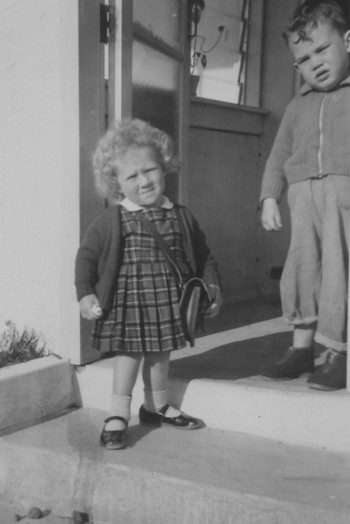
December is a month full of days to commemorate: Special Education, Pearl Harbor Remembrance, Hanukkah, Christmas, Kwanza, to name a few. Some days have been honored for centuries, others only for decades. Take, for example, Special Education Day added to the calendar on December 2, 2005 to celebrate the 30th anniversary of President Ford signing the Education for All Handicapped Children Act of 1975 (later renamed the Individuals with Disabilities Education Act (IDEA)).
As with many civil rights laws, the impetus for IDEA began with a lawsuit. The 1971
Want to subscribe to receive blog updates sign up today!
class action case, Mills vs. Board of Education, District of Columbia, claimed that the Defendants denied students with various disabilities access to publicly funded education with no alternative placement. The court ruled for the Plaintiffs—348 F. Supp. 866, 871 (D.C. Cir. 1972) on August 1, 1972—and followed Brown v. Board of Education, 347 U.S. 483, 493 (1954) in finding that public education is “a right which must be made available to all on equal terms.”
IDEA is a monumental piece of legislation that changed the course of history for students with disabilities. It guarantees a free appropriate public education in the least restrictive environment to children with the disabilities listed in 34 CFR § 300.8(a)(1)—impairments involving the intellect, hearing, speech or language, vision, an “emotional disturbance,” orthopedic, autism, traumatic brain injury, other health impairment, a specific learning disability, deaf-blindness, or multiple disabilities—who, by reason thereof, need special education and related services.
Before IDEA, federal law did not require American schools to accommodate students with disabilities, and many disabled students received little to no education. The same scenario played out for Little People where I grew up in New Zealand. For example, Lillian was not sent to school until she was nine years old, and then for only six years. Danielle dropped out at age 12. Both were academically capable of completing a full education program, but because of their short stature they were denied this opportunity. Indeed, the paternal decision not to advance Danielle from elementary to high school was intended to protect her from teasing.
I am grateful for a totally different educational experience. At age five, I was mainstreamed in public school with other kids my age. There was no reason not to. My size did not affect my ability or intelligence. Physical limitations could be accommodated and dealing with the teasing of other children was something I would have to learn sooner or later.
I also appreciate that the accommodations I received did not separate me from other kids. For example, in 12th grade, my teacher found a creative way to include me in our geography field trip to a farm. She first considered a horse as my transport, but decided it would be too much for the horse! I was the envy of every kid in the class when Alan, a boy in my class, was co-opted to ride me around the farm on his trail bike.
So how does your experience with special education encourage this celebration?
You may also want to read:
- Angela Muir Van Etten. “From Minus one Million to Plus Seven Million.” Blog post. December 7, 2020. https://angelamuirvanetten.com/from-minus-one-million-to-plus-seven-million/
- Angela Muir Van Etten. “Always an Advocate,” Chapter 20, Special Education for Students with Disabilities. October 2021. https://angelamuirvanetten.com/always-an-advocate/
- Angela Muir Van Etten. “Dwarfs Don’t Live in Doll Houses,” Chapter 2, Educated. May 1988. https://angelamuirvanetten.com/dwarfs-dont-live-in-doll-houses/

3 replies on “Special Education Mandate Honored”
Thank goodness this law was passed. I remember a boy I now know had autism. The teacher sent him outside to play much of the time. William attended my first grade class when I was five. I still remember him after 75 years!
BTW cute picture
Thanks for sharing this memory Sandy. I always appreciate your insights and encouraging comments.
Great info! Thank you, Angela!